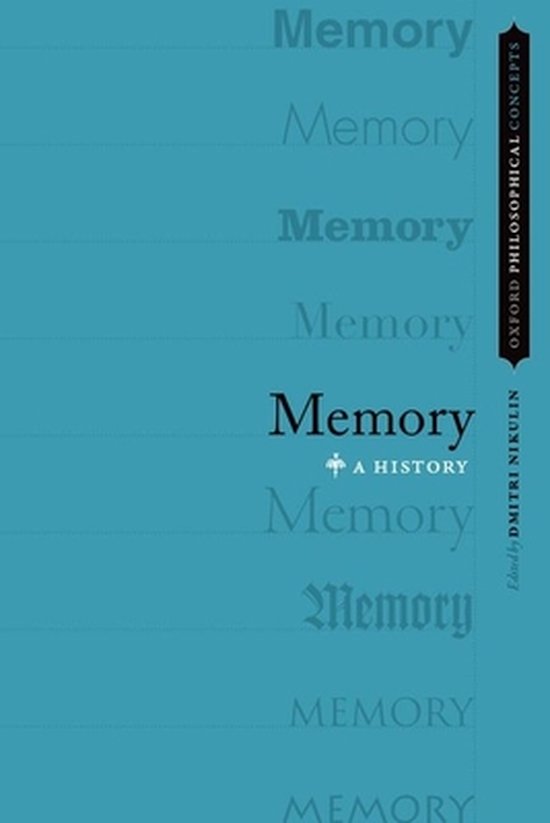
Memory
In recent decades, memory has become a dominant topic in philosophy, politics, history, science, literature, and the discussions of trauma and the Holocaust. This volume shows how the concept of memory has been used in different historical circumstances and how it has changed throughout the history of philosophy.
In recent decades, memory has become one of the major concepts and a dominant topic in philosophy, sociology, politics, history, science, cultural studies, literary theory, and the discussions of trauma and the Holocaust. In contemporary debates, the concept of memory is often used rather broadly and thus not always unambiguously. For this reason, the clarification of the range of the historical meaning of the concept of memory is a very important and urgent task. This volume shows how the concept of memory has been used and appropriated in different historical circumstances and how it has changed throughout the history of philosophy. In ancient philosophy, memory was considered a repository of sensible and mental impressions and was complemented by recollection-the process of recovering the content of past thoughts and perceptions. Such an understanding of memory led to the development both of mnemotechnics and the attempts to locate memory within the structure of cognitive faculties. In contemporary philosophical and historical debates, memory frequently substitutes for reason by becoming a predominant capacity to which one refers when one wants to explain not only the personal identity but also a historical, political, or social phenomenon. In contemporary interpretation, it is memory, and not reason, that acts in and through human actions and history, which is a critical reaction to the overly rationalized and simplified concept of reason in the Enlightenment. Moreover, in modernity memory has taken on one of the most distinctive features of reason: it is thought of as capable not only of recollecting past events and meanings, but also itself. In this respect, the volume can be also taken as a reflective philosophical attempt by memory to recall itself, its functioning and transformations throughout its own history.
In recent decades, memory has become one of the major concepts and a dominant topic in philosophy, sociology, politics, history, science, cultural studies, literary theory, and the discussions of trauma and the Holocaust. In contemporary debates, the concept of memory is often used rather broadly and thus not always unambiguously. For this reason, the clarification of the range of the historical meaning of the concept of memory is a very important and urgent task. This volume shows how the concept of memory has been used and appropriated in different historical circumstances and how it has changed throughout the history of philosophy. In ancient philosophy, memory was considered a repository of sensible and mental impressions and was complemented by recollection-the process of recovering the content of past thoughts and perceptions. Such an understanding of memory led to the development both of mnemotechnics and the attempts to locate memory within the structure of cognitive faculties. In contemporary philosophical and historical debates, memory frequently substitutes for reason by becoming a predominant capacity to which one refers when one wants to explain not only the personal identity but also a historical, political, or social phenomenon. In contemporary interpretation, it is memory, and not reason, that acts in and through human actions and history, which is a critical reaction to the overly rationalized and simplified concept of reason in the Enlightenment. Moreover, in modernity memory has taken on one of the most distinctive features of reason: it is thought of as capable not only of recollecting past events and meanings, but also itself. In this respect, the volume can be also taken as a reflective philosophical attempt by memory to recall itself, its functioning and transformations throughout its own history.
| Auteur | | Nikulin |
| Taal | | Engels |
| Type | | Hardcover |
| Categorie | | Religie, Spiritualiteit & Filosofie |